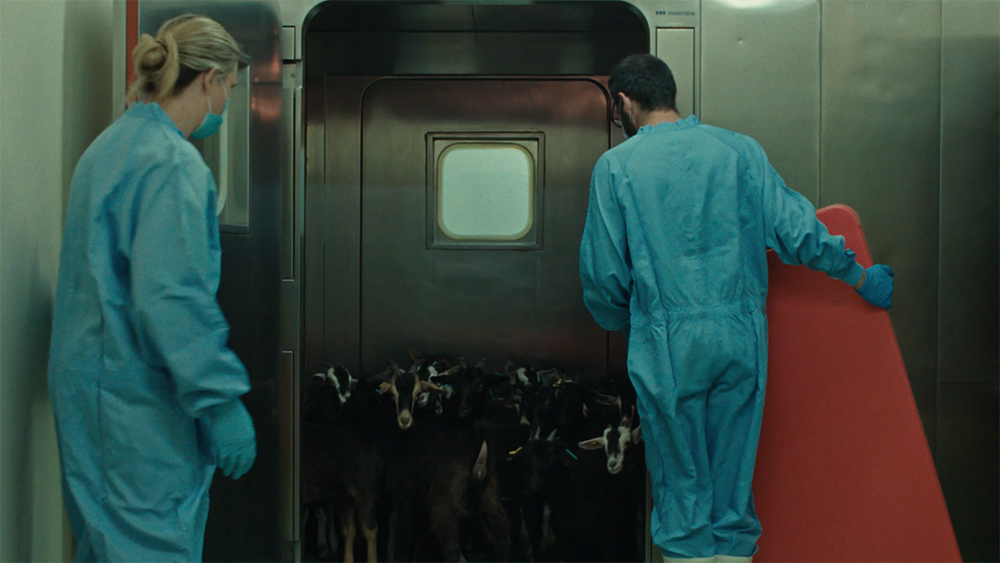
London-based sales outfit Taskovski Films has boarded Spanish documentary “Fauna,” soon to premiere at Visions du Réel and Hot Docs.
Pau Faus directs, while Sergi Cameron produces for Nanouk Films. Faus, Cameron and Julia R. Aymar are also credited as writers.
In the film, set on the outskirts of Barcelona, two realities collide as an old shepherd constantly finds himself in front of a high-tech laboratory for animal experimentation. Afflicted with a bone disease, he witnesses his profession disappearing, while the scientists are busier than ever researching a COVID vaccine.
“It’s a visionary, multi-layered look into contemporary life of humans in the confusing times of pandemic, which left us all lacking many essential answers. Told as a dreamy pastoral tale, the film is challenging the most actual questions of relation between humans and nature,” CEO Irena Taskovski told Variety.
“We have been collaborating with Nanouk Films in the past on Pau Faus’ previous success ‘Ada for Mayor’ and we immediately fell in love with his new project at an early stage. We are so happy to share this gem with worldwide audiences.”
In his second feature, Pau Faus decided to embrace a “poetic science fiction” approach, combining two drastically different realities and focusing on the contrasts between technology and rusticity, a group of scientists and a shepherd, and finally between animals “grazing in the open air” and those trapped inside a science lab.
“Science fiction cinema is the first thing that comes to your mind when you enter a maximum security scientific laboratory like the one in our film. After several weeks of shooting, everything becomes much more mundane. These people are just doing their jobs,” he observed.
Pau Faus
“The first day I entered the laboratory and saw two scientists dressed as astronauts in front of a window that framed the forest, I immediately knew that our film was [all about] that contrast. The great challenge was to bring life and soul to that abstract concept. I believe that this coexistence between dystopia and everyday life summarizes what the pandemic really was.”
According to Faus, although science took center stage during that difficult time, with updates about vaccines constantly making the news, a key element was always omitted: the role of animal experimentation in the advance of modern medicine. He decided to explore that dilemma.
“We thought it was a brave way of approaching a very complex subject. The film brings some hard contradictions to the table and it does so by building a poetic dialogue between science and nature,” added Cameron.
“Fauna” was made with the participation of regional public broadcaster Televisió de Catalunya.
As stated by Cameron, the filmmakers had exclusive access to the laboratory (“similar to the one in Wuhan”) where they shot for two years to make a film reflecting upon the role research plays in relation to pandemics, but also the way humans are colonizing the planet.
“This laboratory is like Noah’s Ark. Pigs, ducks, dromedaries and mice would enter, but no live animal would ever leave,” he said.
“At Nanouk, with my partner Ventura Durall we are constantly looking for new proposals that range from creative documentary to fiction series, but they always share some points in common: Risk in narratives and approaches, proximity to reality and trustworthy [relationships] with the creators that we build over the years. Just like in the case of Pau, with whom we made his debut feature,” he said.
Cameron is also behind “This is Not Sweden” produced by RTVE, TVC, SVT, YLE and NDR, while the company is currently creating “alliances” with such production companies as Producciones del Barrio, Funicular Films, Suica or Sweden’s Anagram.
“We are interested in dark themes, but also in humor,” Cameron said.

Fauna














